Foal Care 101: How To Raise A Baby Horse The Right Way
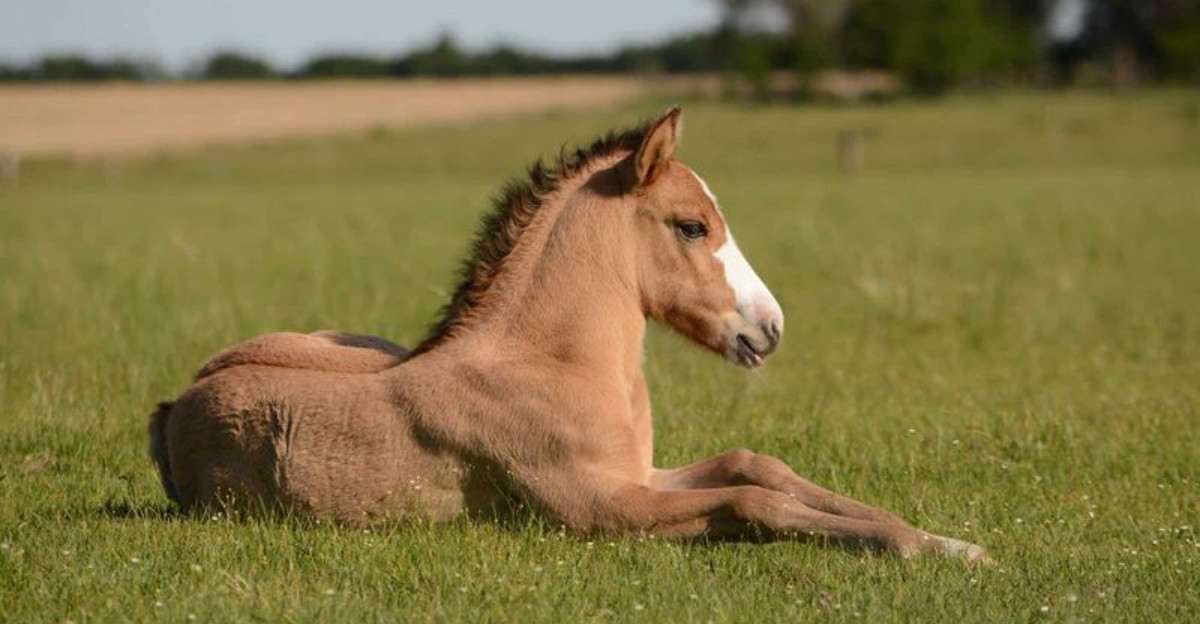
Bringing a new foal into the world is magical, but it comes with huge responsibilities. Those first months shape your baby horse’s future health, temperament, and athletic ability.
Whether you’re a seasoned breeder or a first-time horse parent, knowing the essentials of foal care can make all the difference in raising a happy, healthy equine companion.
1. Prepare Before Birth
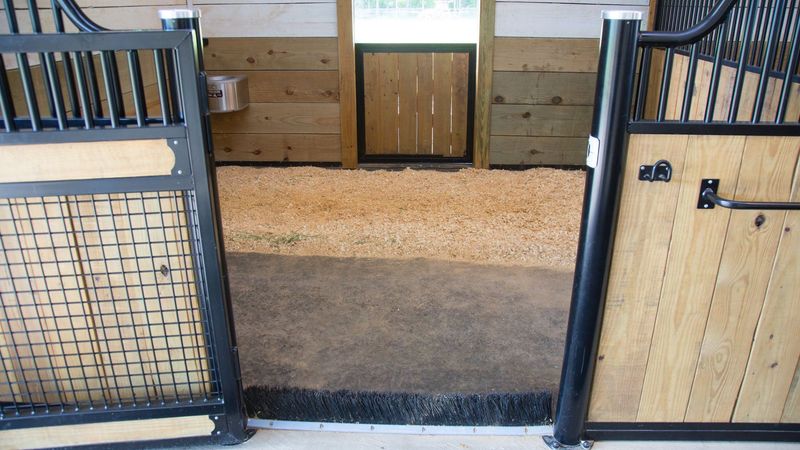
Got a pregnant mare? Start planning at least two months before the due date. Clean and disinfect the foaling area, removing any hazards that could harm a wobbly newborn.
Stock up on essential supplies like clean towels, umbilical disinfectant, and your vet’s emergency number. The more prepared you are, the smoother the birth experience will be.
2. Monitor The First 24 Hours

Those initial hours are make-or-break for your new foal. Watch for nursing within 2 hours – it’s crucial they get that first immunity-packed colostrum.
Check that the foal passes its first manure (meconium) and urinates normally. Any delays could signal problems requiring immediate veterinary attention. Your vigilance during this window can literally save their life.
3. Call For Professional Health Checks
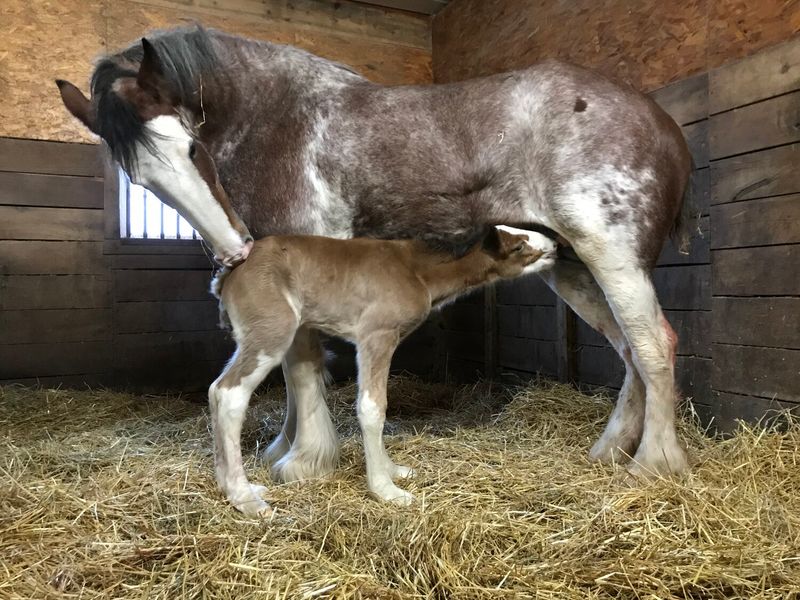
Even perfectly normal-looking foals need a thorough vet examination within 12-24 hours after birth. Your vet will check for congenital issues, ensure proper passive immunity transfer, and confirm overall health.
Schedule follow-up appointments for vaccinations and regular growth assessments. Early detection of problems means better chances for successful treatment and prevention of long-term complications.
4. Master Proper Feeding Techniques
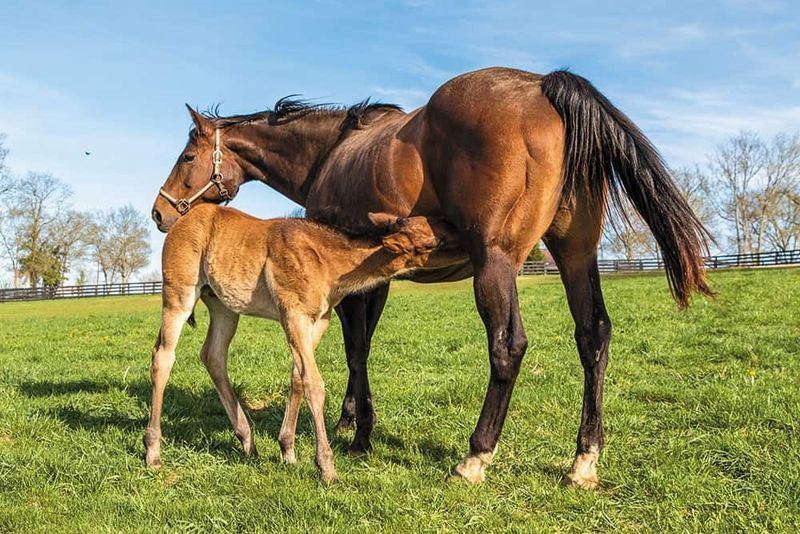
Nature designed foals to nurse frequently – up to 7 times per hour in the early days! Ensure your mare produces quality milk by feeding her a balanced diet rich in essential nutrients.
If bottle supplementing becomes necessary, use only mare milk replacer formulated specifically for foals. Cow milk or improper formulas can cause digestive upset and nutritional deficiencies that impact growth.
5. Create Safe Spaces For Exercise
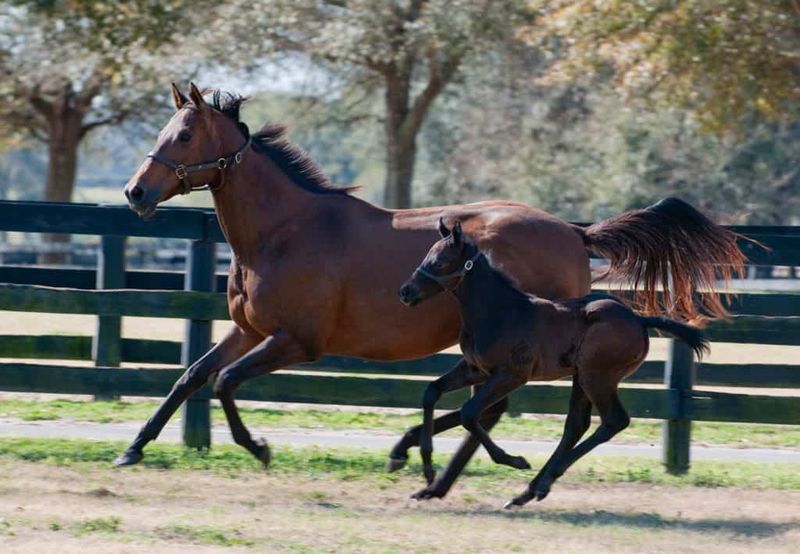
Freedom to frolic isn’t just cute – it’s critical for development! Provide a hazard-free paddock where your foal can gallop, buck, and play without risk of injury.
Remove obstacles like low branches, holes, or debris. The running and playing strengthens bones, develops coordination, and builds cardiovascular health. Plus, watching those playful antics is one of the greatest joys of raising a foal!
6. Start Gentle Handling Early
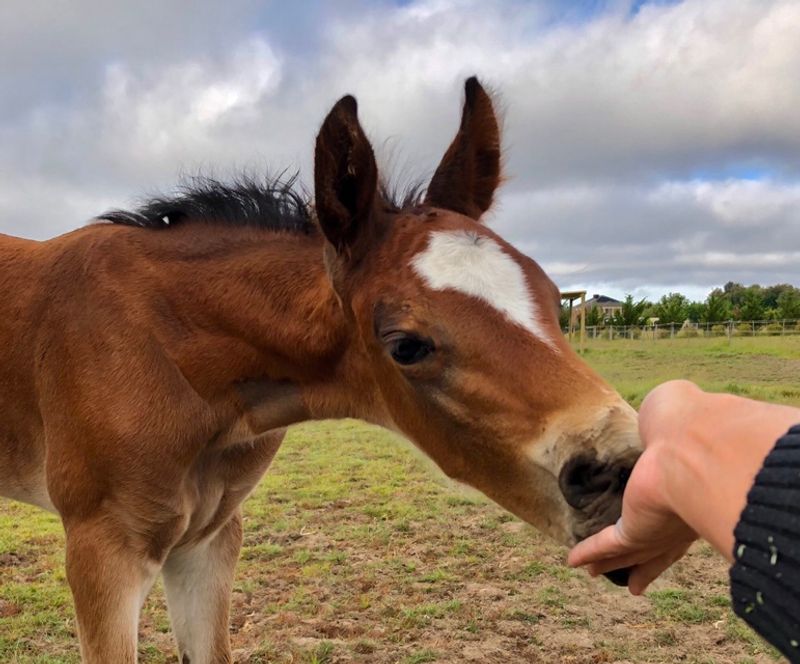
Touch your foal all over from day one – ears, legs, belly, and even inside the mouth. This early desensitization makes future veterinary care and training much easier.
Keep sessions short and positive, always respecting the bond between mare and foal. Teach basic skills like haltering and leading gradually. Remember, these first impressions of human interaction will shape their attitude toward people for life.
7. Introduce Proper Hoof Care
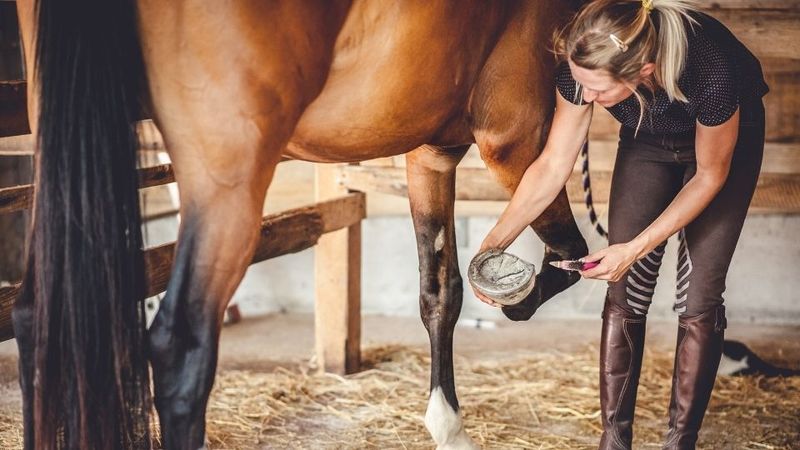
Tiny hooves need attention from the start! Beginning at 2-3 weeks old, have your farrier trim those little feet to prevent developmental issues.
Between professional visits, practice picking up each foot daily. This routine handling prevents future resistance to hoof care. Poor hoof development in these formative months can lead to lifelong lameness issues that no amount of later correction can fully fix.
8. Watch For Growth Milestones
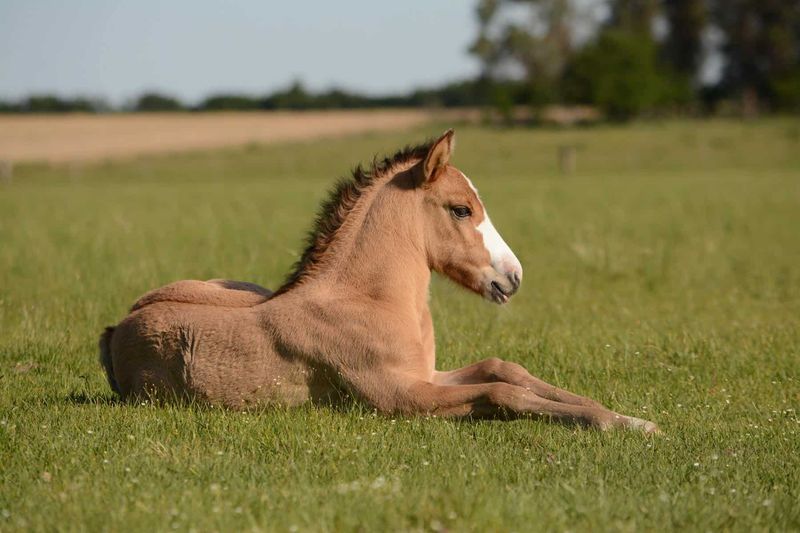
Track your foal’s development against established growth charts for their breed. Healthy foals typically gain 2-3 pounds daily during their first months.
Too rapid growth can cause developmental orthopedic diseases, while slow growth might indicate health problems. Take monthly height and weight measurements, noting any sudden changes. Photos from the same angle each month create a wonderful growth record!
9. Socialize With Other Horses
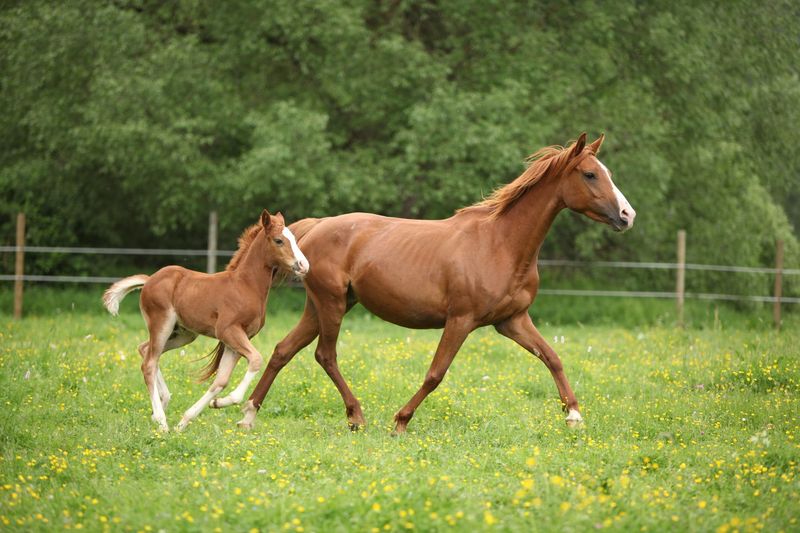
Young horses learn vital communication skills from the herd. Once your foal reaches about 3-4 months, carefully introduce them to gentle, vaccinated horses of various ages.
These interactions teach respect, boundaries, and horse social cues no human can properly demonstrate. Well-socialized foals grow into confident, adaptable adult horses with fewer behavioral problems and reduced stress in new situations.
10. Implement A Deworming Schedule

Foals are parasite magnets! Their immature immune systems make them especially vulnerable to worm infestations that can stunt growth or cause colic.
Work with your veterinarian to create an age-appropriate deworming protocol, typically starting around 2-3 months old. Regular fecal egg counts help determine effectiveness and prevent resistance. A parasite-free digestive system ensures maximum nutrient absorption during this critical growth period.
11. Plan Proper Weaning Strategies
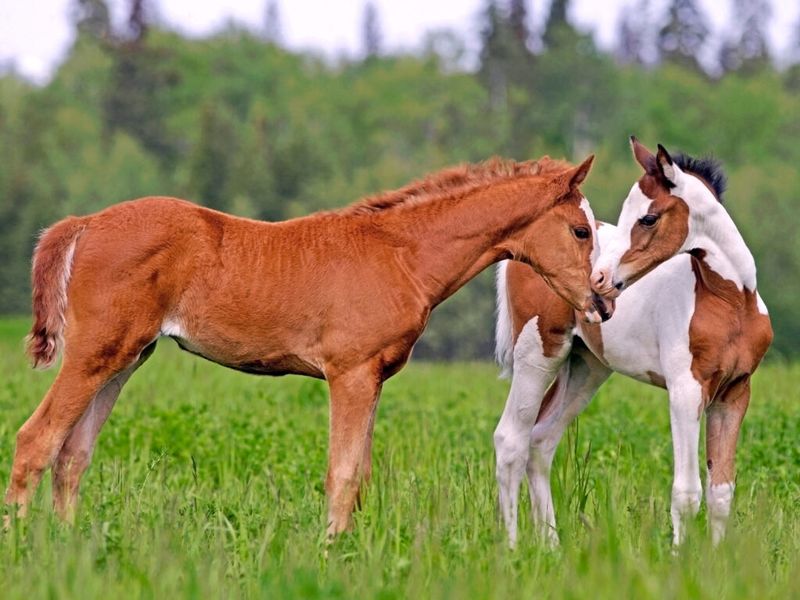
Gradual weaning around 5-6 months causes less stress than abrupt separation. Some breeders remove one mare at a time from a group or use partial separation where foals can see but not nurse.
During this emotional transition, provide extra attention and highly digestible feed to compensate for lost milk nutrition. Watch for signs of depression or illness, as stress can temporarily suppress the immune system.
12. Begin Basic Training Lessons
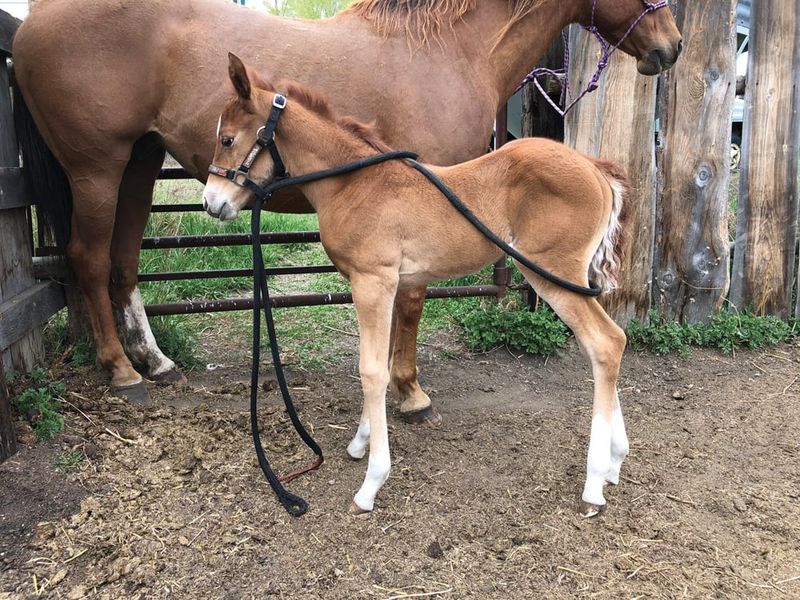
Short, positive training sessions build a foundation for lifetime learning. Start with simple commands like “stand” while grooming or “walk” while leading.
Always end on a successful note, even if that means simplifying your request. Young minds have limited attention spans, so keep lessons under 15 minutes. These early experiences shape how your horse will view training forever – patience now pays tremendous dividends later.
13. Recognize Health Warning Signs
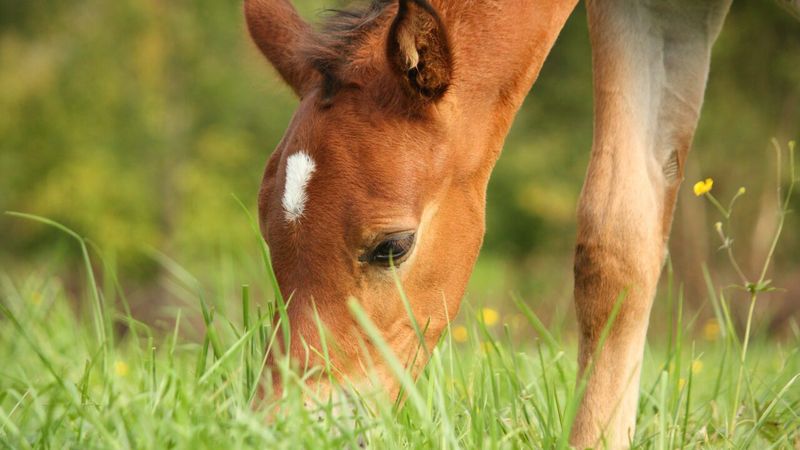
Quick response to illness can make the difference between minor setback and tragedy. Learn to recognize danger signals like lethargy, decreased nursing, fever, or diarrhea.
Take daily temperature readings during the first weeks to establish your foal’s normal baseline. Keep your vet’s contact information handy, and never hesitate to call with concerns. Young foals can deteriorate rapidly, sometimes showing serious illness only hours after appearing perfectly healthy.






